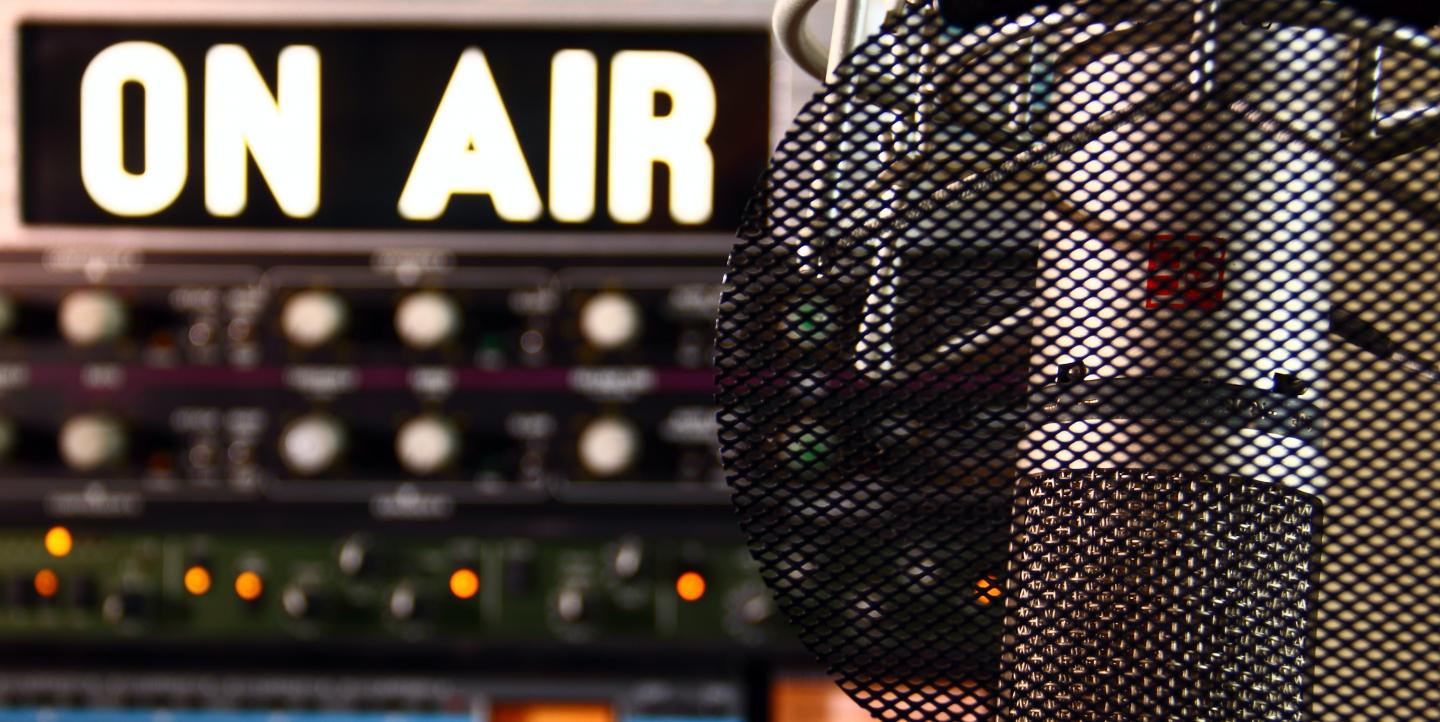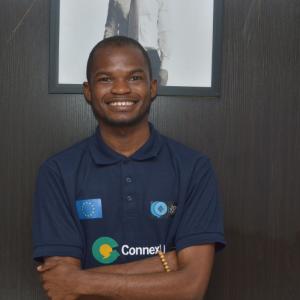Nanji Nandang had just graduated from journalism school and was volunteering with a radio station in the northern Nigerian city of Jos when she heard about Musa*, a 9-year-old who was a survivor of sexual abuse. When she learned of his ordeal, she felt the media could help.
In northern Nigeria, the incidence of gender-based violence has grown significantly. This includes forced and early marriages, as well as physical, mental and sexual assaults on women and children. Nearly three in 10 Nigerian women have experienced physical violence by age 15, according to the United Nations Population Fund. Two-thirds of children who are survivors of violence and abuse never speak out. Fewer than five out of 100 receive any form of support.
In 2020, Nandang launched Silent Voices, a radio show aimed at creating awareness about gender-based violence, in collaboration with the International Federation of Women Lawyers (FIDA), an NGO involved in the promotion, protection and preservation of the rights of women and children. “Since its launch, we have been able to not just raise awareness and give voice to the voiceless, but our partnership with FIDA has enabled us to prosecute some of the perpetrators of these acts,” said Nandang, adding: “What inspired me was Musa’s* story; he did not deserve what happened to him.”
Every Thursday evening, Nandang goes on air to talk to more than 100,000 listeners of Jay 101.9 FM in Jos. “During phone-in calls, some of the listeners call under anonymity to report their plights, while others call to share their experience. People are now speaking up,” she said.
Silent Voices runs a podcast with over 41,000 monthly listeners and also collaborates with civil society organizations to reach out to educate and support children and women on these issues.
[Read more: How a student-run media outlet is advancing journalism in Nigeria]
Justice taking its course
In June 2021, Silent Voices and FIDA took up the case of Mafeng*, a 13-year-old girl who was raped by her neighbor. They informed the police of the incident, and FIDA provided pro bono legal services for Mafeng. Currently, the perpetrator is behind bars, awaiting prosecution.
Gender-based violence is a human rights violation. The country’s National Bureau of Statistics reported that in 2017 there were 2,279 cases of rape and indecent assault reported to the police. Unfortunately, the majority of sexual and gender-based violence incidents go unpunished in Nigeria.
Between 2019 and 2020, there were an alarmingly low 32 successful rape prosecutions, reported by Nigeria’s anti-trafficking unit, the National Agency for Prohibition of Trafficking in Persons. The Agency, which publishes a federal sex offenders’ register on its website, does not have separate data specifically on child rape.
In 2020, Nigerian President Muhammadu Buhari said that he is “particularly upset at recent incidents of rape, especially of very young girls.” Governors across Nigeria also declared a state of emergency in June of that year on the issue of sexual and gender-based violence against women and children. Cases have only continued to increase, however, especially in northern Nigeria.
During the second annual conference of the Nigerian Governors’ Wives Forum in early December, Aisha Buhari, Nigeria’s First Lady criticized the federal government for its failure to do more to combat sexual and gender-based violence in Nigeria.
Mary Izam, the Plateau state chapter chairperson of FIDA attested to the worrying numbers. “We partnered with the Silent Voices radio show to enable our efforts to offer guidance and litigation to victims of molestation, child abuse and other sexual/gender-based violence,” she said. “We have also had to attend to several cases with some currently in court. Through the pro-bono services offered by our professional members to victims, we see to it that justice is served.”
[Read more: Tips for reporting on human rights violations and abuses during COVID-19]
Challenges encountered
Running Silent Voices comes with a burden. “Oftentimes, victims give up on the way due to lack of finances,” said Nandang. “When a case is taken to the Nigerian Police, victims are often made to foot the medical bills and other utility payments, and I have situations where parents — [mostly poor people] — of victims collect bribes from the perpetrators to withdraw the case after we have taken it to court.”
According to Izam, harmful traditional practices have played a large role in silencing women and children. “Even when they try to speak up, some of the perpetrators are powerful in society and they try to use their influence to suppress our efforts. We had a case where the judge declined to rule for ‘personal reasons.’ The victim continually received threats, and in the end she opted out,” she said.
For Silent Voices, its reporting goes beyond telling the stories of these survivors. Despite the challenges encountered, the show has continued to educate its listeners on how to legally handle sexual abuse and assault issues.
When survivors are able to share their stories, Nandang and her team ensure that the accounts and evidence are authentic. Then, they facilitate legal services and support through their partners. In many cases, too, they coordinate physical forensic examinations to be carried out, and help identify needed treatments and psychological support.
* [not real names] sources asked to remain anonymous.
Photo by Fringer Cat on Unsplash.


